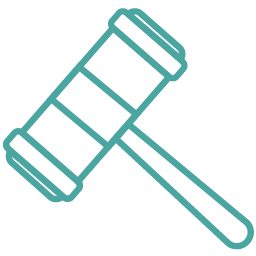Renault (2009-2019): Captur, Clio, Espace, Fluence, Infowheels, Kadjar, Kangoo, Koleos, Laguna, Mascott, Master, Maxity, Megane, Modus, Scenic, Talisman, Theault, Trafic, Twingo and Vel Satis.
This list may be updated as the investigations by the Foundation are still ongoing.
You can join the Claim if you are an individual owner, lessee, or fleet owner for most of the Dacia and Renault diesel models that are either Euro 5 or Euro 6 approved and were manufactured between 1 January 2009 and the end of 2019.
In order to join, it is not necessary that you still own or lease your car.
Car Information

The Case Against Renault
Between 2009 and 2019, Renault and its subsidiary Dacia installed impermissible “defeat device software” in all their Euro 5 and Euro 6 diesel vehicles. This software allowed these vehicles to meet the applicable emission norms within the type approval test. In real driving conditions however, the vehicles grossly exceeded – and still continue to exceed – the NOx emissions norms.
Renault and Dacia diesel vehicles are amongst the worst offenders of all European manufacturers. Their vehicles rank amongst the most polluting diesel vehicles sold on the European market throughout the relevant period. Recently, the French public prosecutor made formal charges against Renault in relation to its conduct in the Diesel scandal.
Renault engaged in this conduct for purely financial reasons. The purpose of this software was to impair or even shut down the emission reduction systems under most driving conditions. By installing this software, Renault was able to save the costs of installing a properly functioning emissions reduction system. Renault’s sub-standard emissions reduction system was however unfit to meet the limits imposed by law. According to Renault itself, if the reduction system would be fully operative in regular driving circumstances – as it should be – this would even severely damage the engine.
One of the defeat devices used in the vehicles was a so-called temperature window. When the outside temperature is either below 17 degrees or over 35 degrees Celsius, the software significantly reduces the operation of the so-called Exhaust Gas Recirculation (EGR) system, that is supposed to curb NOx emissions. In the Netherlands, this means that the EGR is significantly reduced in operation or even fully shut off during most of the year. Other illegal cheat devices in the software reduce the effectiveness of Renault’s emissions control system even further. As a result, Renault vehicles exceed the emissions norms by up to 16 times.
Renault Response
In promoting and selling these vehicles, Renault caused massive damage to its customers. The diesel market meanwhile collapsed and the value of the vehicles has greatly diminished. Apart from affecting your wallet, this conduct also had a negative impact on the environment and may have had a negative impact on your health – and on the health of many others. Nevertheless, Renault that presents itself as a “green” and ethical company, continues to deny any wrongdoing.
With its unethical conduct, Renault has engaged in consumer fraud and therefore must be held accountable.
What we are doing
As a large international corporation Renault relies on the fact that a single person does not have the resources to challenge its wrongful conduct. Until recently, collective redress in Europe has been fragmented. This has allowed wrongdoers like Renault to avoid liability to its customers who have suffered financial damage by way of decreased resell values and increased maintenance costs. Now, with the WAMCA-legislation in the Netherlands, the Foundation is able to represent all affected car owners for the corporate wrongdoing of Renault, Dacia and related parties.
Having initiated litigation against four major car conglomerates, the Foundation has obtained significant expertise in proving the presence of defeat devices and determining which vehicles are affected. This leaves the Foundation well placed to serve your interests.
Case info
The case is pending before the Amsterdam District Court and is registered under case number C/13/710434 HA ZA 21-1030. The defendants in the proceedings are Renault S.A, Renault S.A.S., Automobile Dacia S.A., Renault-Nissan B.V., Renault Nederland N.V. and 76 Dutch Renault and Dacia car dealers. A list of all the car dealers involved in the proceedings can be found here.
CURRENT STATUS
On 13 November 2024, the Amsterdam District Court issued an amended information order to Renault. Both parties have been given the opportunity to respond to this order. The briefs must be submitted to the court on 8 January 2025.
PROCEEDINGS AGAINST RENAULT AND DACIA
Your VIN is a 17-character ID and is located on your Registration, Insurance card and Title documents. Please note, you will need one of these documents to complete your registration as a claimant.
Your privacy and our use of cookies
The Diesel Emissions Justice Foundation (Stichting Diesel Emissions Justice) makes use of cookies and comparable techniques necessary for the correct functioning of our website. We also make use of analytical and affiliate cookies with limited or no impact on your privacy to improve the quality of our website. With your consent, we also use tracking cookies and social media cookies so that we and third parties can tailor advertisements and other content to your interests. Read more about cookies in our privacy statement.
Read more about cookies in our privacy statement.
Please select the country/region and language below
